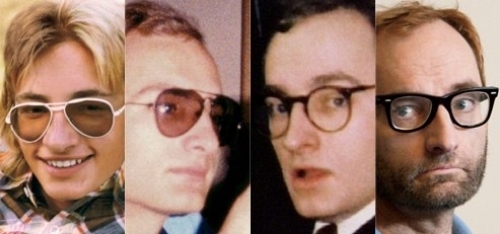What do you think?
Rate this book


255 pages, Hardcover
First published March 3, 2014




We're brought up to trust and could hardly function otherwise. The cop who pulls us over to write a ticket must be a cop because he wears the uniform; the bank teller to whom we hand our paycheck is depositing it, not stealing it, because he works behind a marble counter; the nurse who places our newborn in our arms is really a nurse because she's holding our baby, and our baby is our baby because she's holding it."
You knew who I was, and deep down I knew who you were, even if I played dumb there for a time--so dumb I didn't realize I was playing, which, looking back, was a fairly cunning strategy.